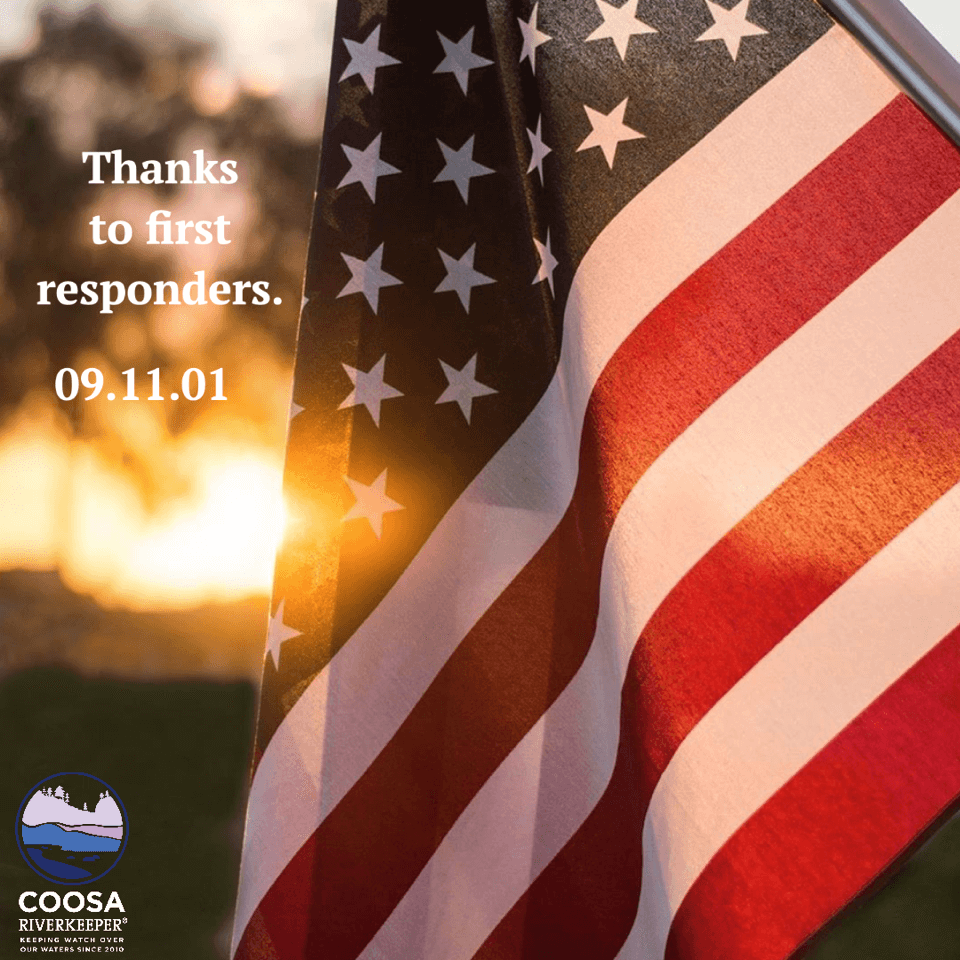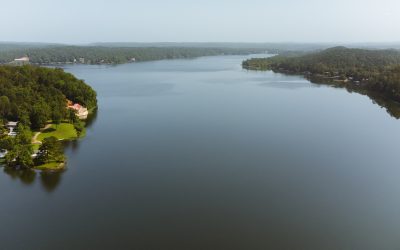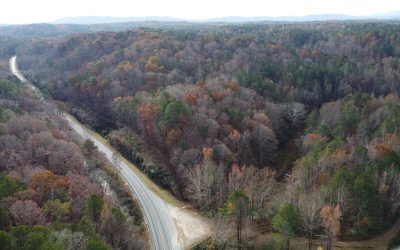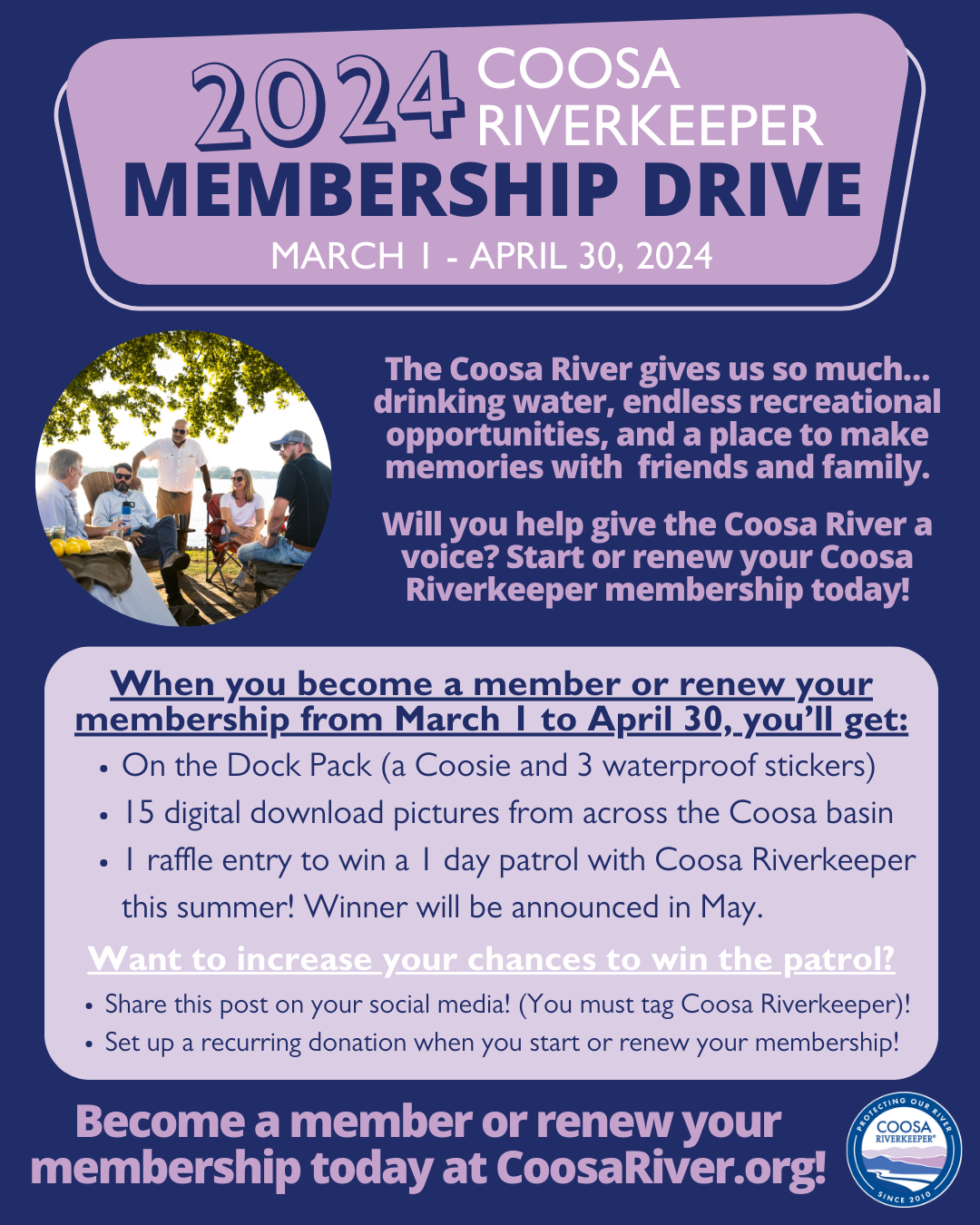Day of Service
Jake, our Patrol Member and newest AmeriCorps VISTA, chose to spend his National Day of Service talking with Officer Vance Wood, an Alabama Conservation Enforcement Officer, about his service to our nation and to the citizens of Alabama. Below is a transcript of their interview with photographs provided by Officer Wood.
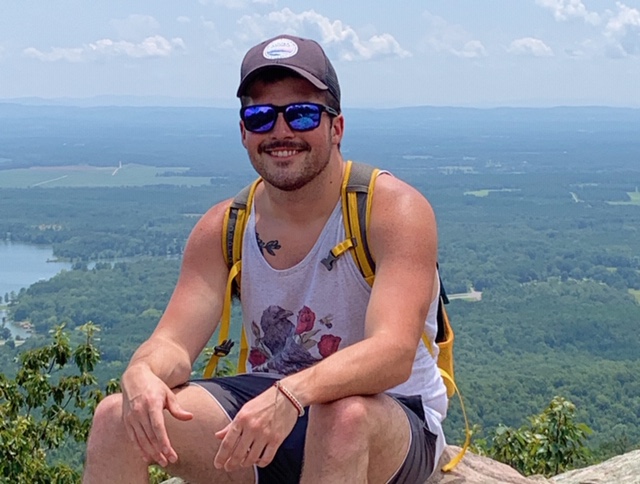
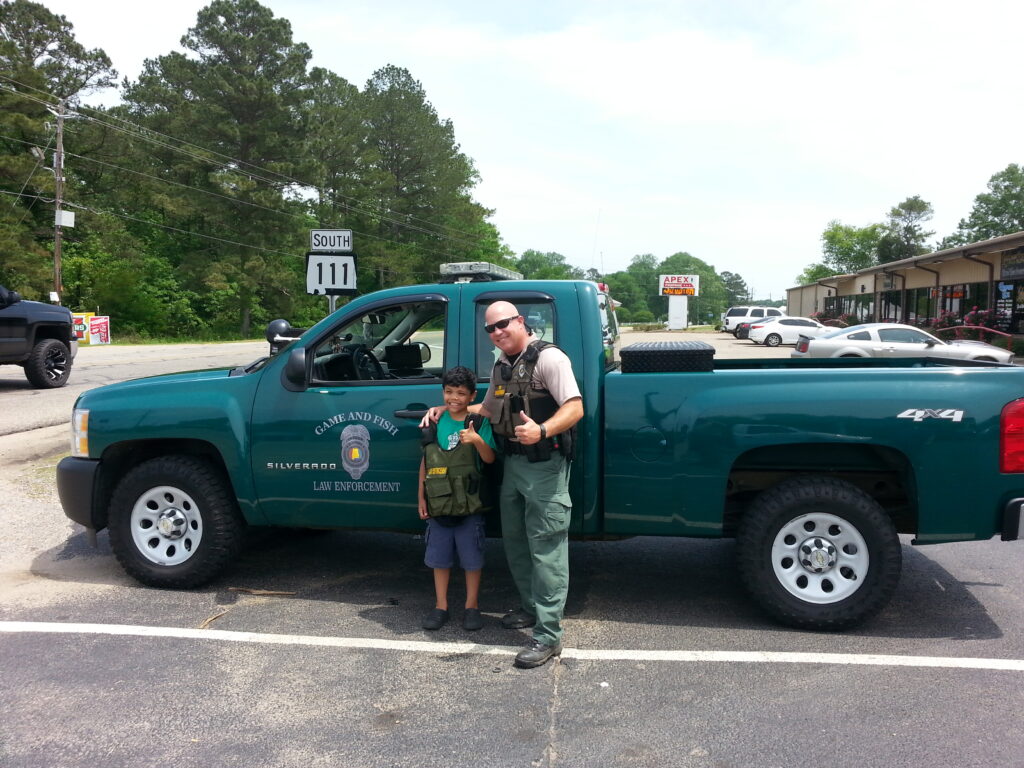
What does your service entail and mean to you?
My entire life has been dedicated to serving my country, my community and fellow citizens. From serving in the United States Coast Guard at 17 years old, to Fire / EMS / Search and Rescue Services and Law Enforcement, public service is all I have ever known. I consider it an honor and a privilege to serve others.
Has 9/11 changed the way you serve as a Conservation Enforcement Officer? Meaning, has it changed your perspective on how you serve?
9/11 forever changed my life. Immediately following the attack my Coast Guard Unit was put on alert for deployment to the Middle East in support of Counter-Terrorism Operations and Force Protection of U.S. Assets in that region. My unit, PSU 308 was deployed twice with a 6-month turnaround between deployments, which left little time to adjust back to civilian life before redeployment. Working alongside other nationalities in a combat zone in a foreign country, gave me a deeper sense of how others live. It gave me a deeper appreciation for the United States of America and how good we have it here. Our freedoms and liberties coupled with our bountiful natural resources made me even more proud of our country and therefore even more committed to protecting what we have.

Has your service as a Conservation Enforcement Officer changed the way you view public lands/waters? How so?
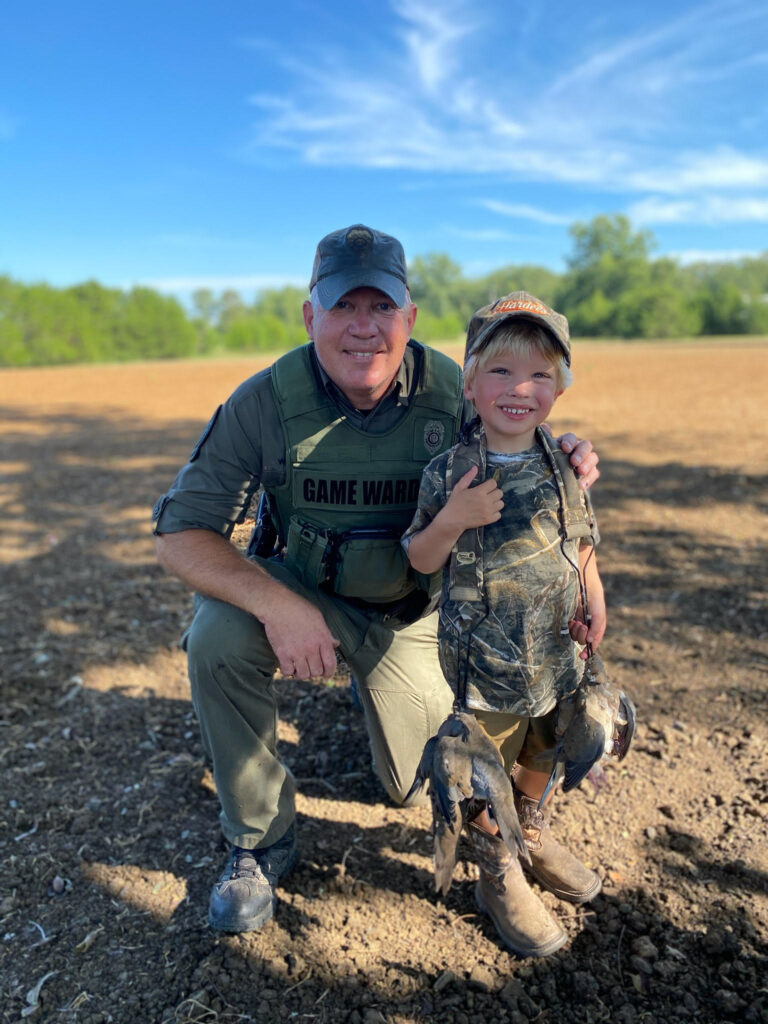 I have always been an avid outdoorsman. My Father always made it a point to take my Brother and I hunting and fishing. He taught us not to litter and to take only what we needed My Grandfather was a farmer and he taught me how to work the land and take care of it. After becoming a Conservation Enforcement Officer, I got to see firsthand how some people do not respect the land, the water or the bounty each provides. How certain people take our natural resources for granted, as if we have plenty and it will always be around. We have to conserve and protect what we have, if we expect our children to grow up and enjoy the same things our generation has been accustomed to.
I have always been an avid outdoorsman. My Father always made it a point to take my Brother and I hunting and fishing. He taught us not to litter and to take only what we needed My Grandfather was a farmer and he taught me how to work the land and take care of it. After becoming a Conservation Enforcement Officer, I got to see firsthand how some people do not respect the land, the water or the bounty each provides. How certain people take our natural resources for granted, as if we have plenty and it will always be around. We have to conserve and protect what we have, if we expect our children to grow up and enjoy the same things our generation has been accustomed to.
Has Waterkeeper Alliance members, like Coosa Riverkeeper, helped your service at all? If so, how?
Waterkeepers have been a great resource and avenue for education regarding water quality and fish consumption advisories. I often refer citizens to Riverkeepers in their respective areas when they have questions that concern them, so that they not only have a government official’s perspective, but also an independent perspective.
What would you say is the biggest threat to public lands/waters? What could be some ways to lessen the threats?
Pollution and littering are probably two of the biggest, along with the illegal importation of non-native species of wildlife and plants. Educating the public on the risks of all of the afore mentioned threats is quite possibly the most important step in lessening the impacts. A lot of citizens simply do not see the threat or acknowledge it, until that threat is literally at their doorstep. Plastic bottles, etc. thrown on the roadside can make their way through a ditch during heavy rainfall, to a river and eventually to the Gulf of Mexico impacting many species of wildlife and the environment along the way. Invasive wildlife species can wreak havoc on the ecosystem, by competing for food sources our native wildlife depend on to thrive. Invasives also have the potential to spread diseases that can decimate our native wildlife.
How can citizens be more proactive in serving to protect and conserve their lands/waters?
By taking every opportunity to become better educated on the ways our natural resources are funded and protected is a great step. Many do not understand that the Conservation Enforcement Officers funding comes from the sale of hunting and fishing licenses. State General Fund monies provided by taxpayers are not utilized or made available. The saying, “If you see something, say something.”, was born out of the aftermath of 9/11. It goes without saying and applies as well, to how citizens can protect their lands and waters. If you as a citizen see a natural resource problem or violation, report it to your local Conservation Enforcement Officer or Dispatch in Alabama at 1-800-272-4263. Most counties have two Officers; however, some only have one. With so few Officers, we rely heavily on citizen tips.
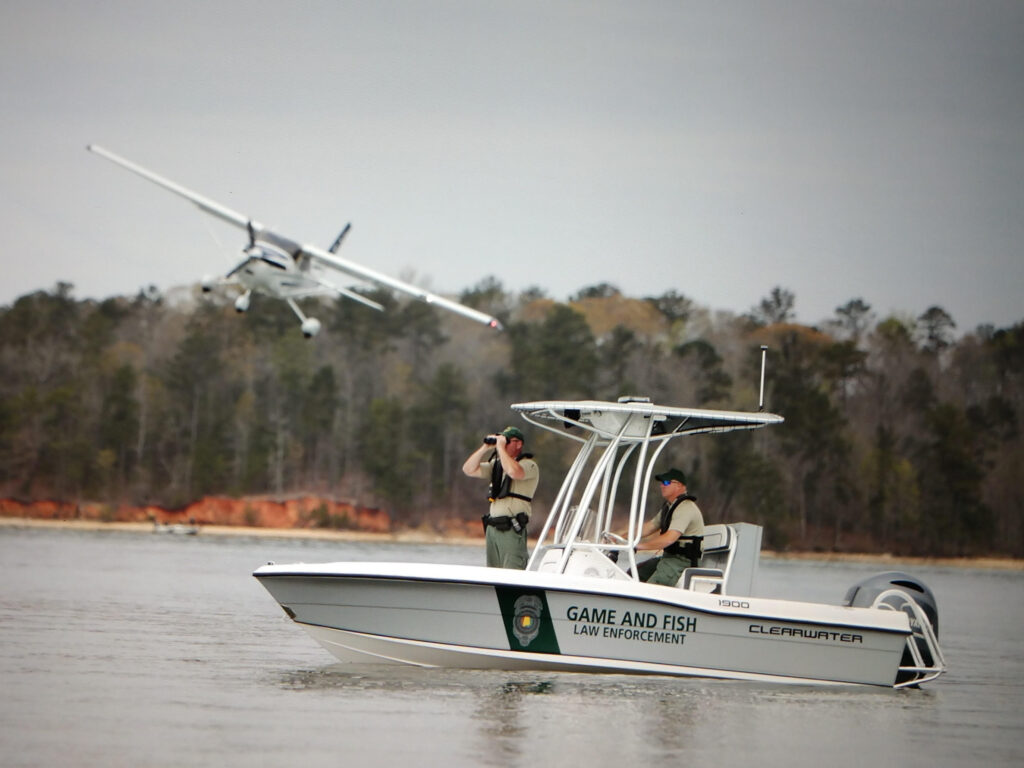
What do you hope for the future as a Conservation Enforcement Officer or what do you hope for future officers?
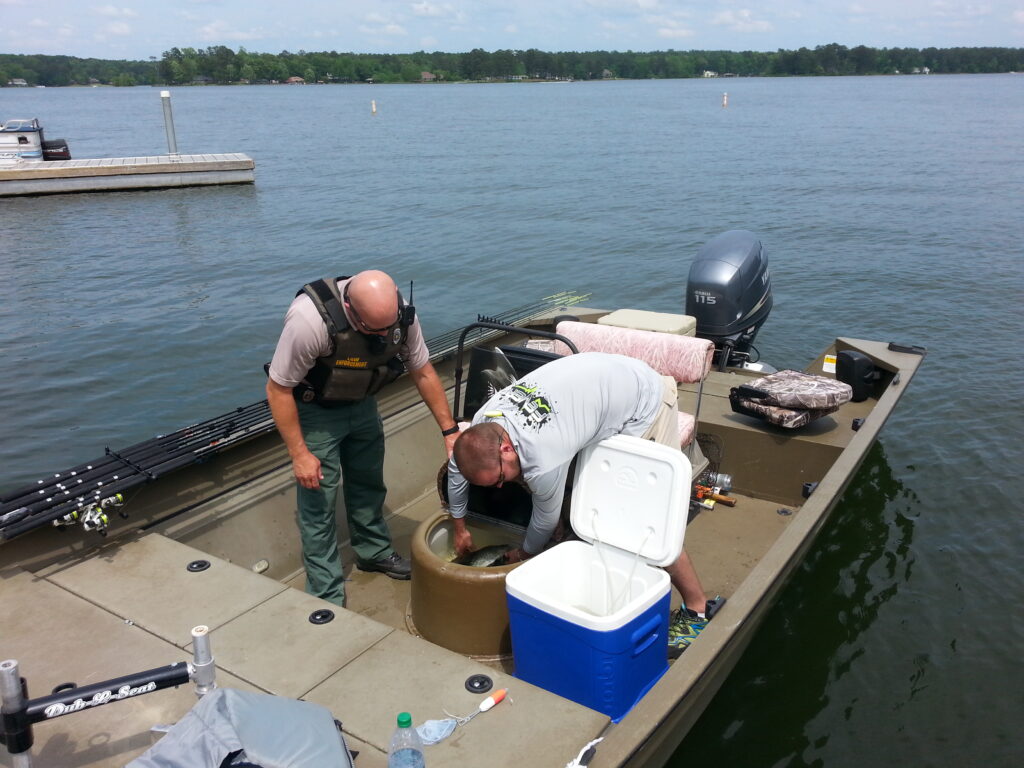 We have come a long way since 1907. While equipment needed to protect our resources and citizens has gotten better, we are still behind. Mostly this is due to funding and an unforeseen pandemic. As our leadership continues to monitor budgets and seek alternative sources of funding to better equip current Officers, I hope to see our future Officers even better equipped for success.
We have come a long way since 1907. While equipment needed to protect our resources and citizens has gotten better, we are still behind. Mostly this is due to funding and an unforeseen pandemic. As our leadership continues to monitor budgets and seek alternative sources of funding to better equip current Officers, I hope to see our future Officers even better equipped for success.
How do you enjoy public lands/waters, and how have veterans played a role in your life?
As a Veteran, I often spend time outdoors. Boating, fishing, floating and hunting are all favorite pastimes of mine and my family. Being outdoors is therapeutic, especially for many Veterans.
How does the work that you as a Conservation Enforcement Officer fulfill you?
I can see a return on my time when I witness people enjoying the outdoors and our natural resources flourishing. It is the most rewarding Law Enforcement career I have ever had. I enjoy talking with the public and sharing the outdoor experience Alabama has to offer.
What advice or wisdom would you give to someone interested in work as a Conservation Enforcement Officer?
This is not a 9 to 5 job. It takes a hardworking, dedicated and self-motivated individual to be a Conservation Enforcement Officer. You will be hot, cold, wet, sunburnt and tired at times. You will work most weekends and miss some family events, but if you can handle that maybe you are ready for one of Law Enforcement’s most challenging and fulfilling careers!
We honor the men, women, and families who sacrifice for our nation and our state.
